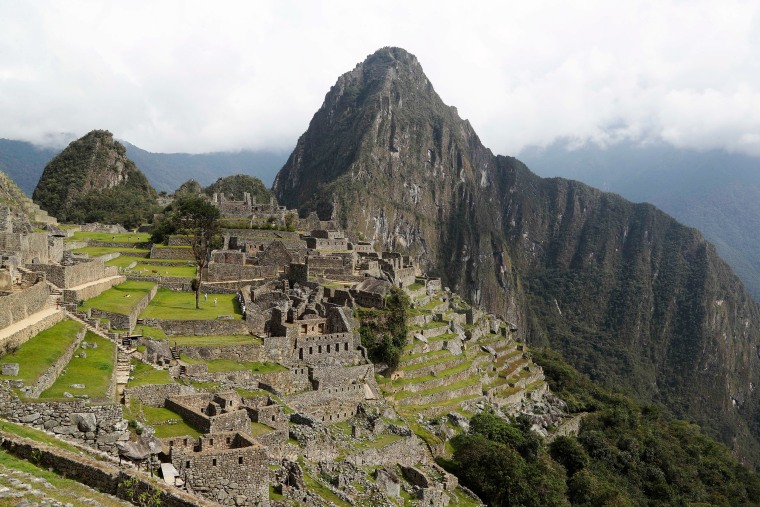LIMA, Peru — The streets, hotels and restaurants around the ruins of Machu Picchu — Peru’s most famous tourist attraction — remained almost deserted Wednesday, with train service to the area canceled amid a week-long protest over the outsourcing of entry ticket sales to a private company.
Small businesses and workers in the tourism sector fear the new ticketing system imposed by Peru’s government 10 days ago will hurt them while benefiting big companies, and their protests have slowed visitor arrivals to a trickle.
“This seems like the time of the COVID-19 pandemic, you hardly see any people,” said Roger Monzón, an employee at the Inkas Land hotel in the Machu Picchu district, an 18-room building currently housing only two tourists from Portugal.
Train service to the area was suspended late Friday until further notice, so the few tourists who persist in going, most of them young, leave the Andean city of Cusco in cars that take them 130 miles to a hydroelectric plant. From there they walk two hours to reach the Machu Picchu district, where they rest. Then they have to walk to the stone citadel for 2 1/2 hours.
The protests, which began Jan. 24, are in response to the government’s decision to outsource the sale of tickets for entering the Machu Picchu site to Joinnus, a virtual ticket sales platform owned by one of the wealthiest economic groups in Peru.
Previously, tickets to Machu Picchu were handled by an online portal of a state entity that operates out of Cuzco.
The government says the use of the private platform seeks a transparent sale of tickets. It says a market for the sale of unregistered tickets was detected in 2023 that had caused a loss of $1.8 million for tickets not reported by state offices.
Tourism workers and small tourist operators say they do not trust the new system, claiming it will favor big tourist operators in detriment of free competition and small business owners.
They say there is no legal way to guarantee confidentiality for personal data that the Joinnus platform obtains from tourists — telephone numbers, emails and date of visit to the citadel. They worry the information could be transferred to big tourism companies that would then be able to offer accommodations, food and transfer services to tourists in advance, giving them an advantage over smaller operators.
Protesters want the new system canceled and are also demanding the resignation of Minister of Culture Leslie Urteaga, who authorized the ticketing change.
Four countries — the United States, Germany, France and Brazil — have advised their citizens to be cautious if they are planning to visit Machu Picchu, a World Heritage Site since 1983, citing the potential lack of water and other essentials resulting from transport disruptions.
Tourism is the main economic activity in Cusco, with more than 200,000 people having direct jobs in the sector. In times before the protests, up to 4,500 visitors entered Machu Picchu every day.
There are no official figures on potential losses during the first week of protests, but some tourism unions estimate the damage at about $4.7 million.
“The losses include all sectors that are directly linked to tourism such as tourist agencies, hotels, restaurants, tour guides, but also markets, taxi drivers and peasant communities,” said Elena González, president of the Association of Cusco Tourism Agencies.
For more from NBC Latino, sign up for our weekly newsletter.
